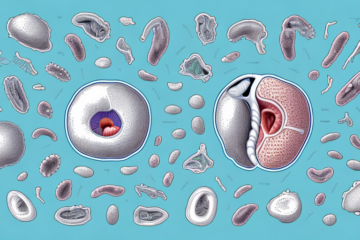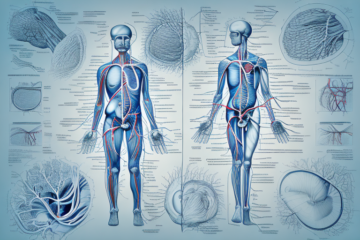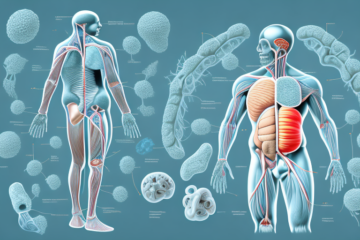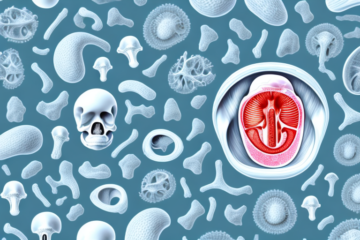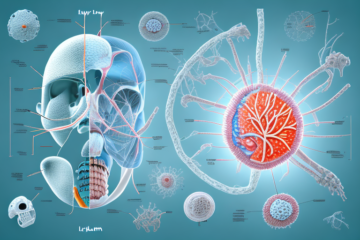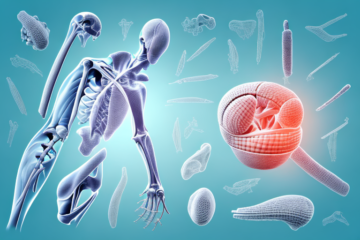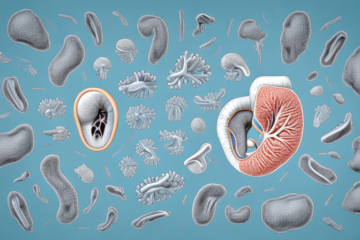The vulva is the external genitalia in females, and it is a complex structure that plays a vital role in reproductive and sexual health. Understanding the basics of the vulva is essential for women’s health, as it helps them to identify any abnormalities or abnormalities that require medical attention. This article will provide a detailed overview of the vulva, including its anatomy, function, and common conditions that affect it.
Understanding the Basics: What is the Vulva?
The vulva is the external part of the female genitalia, which includes the labia majora, labia minora, clitoris, vaginal opening, and the urethral opening. These structures are responsible for sexual functions, such as arousal, lubrication, and orgasm, as well as reproductive functions, such as menstruation and childbirth.
It is important to note that the appearance of the vulva can vary greatly from person to person. Some may have larger or smaller labia, while others may have a more prominent clitoris. Additionally, the color and texture of the skin can also differ. It is important to remember that these variations are normal and healthy, and there is no “right” or “wrong” way for the vulva to look.
The Role of the Vulva in Female Reproductive Health
The vulva plays a crucial role in female reproductive health as it serves as the external opening for the vagina and the cervix. The vaginal opening allows for the entry and exit of sperm during intercourse, while the cervix is the opening that connects the vagina to the uterus, which is where fertilization and implantation of the embryo occur.
In addition to its reproductive functions, the vulva also plays a role in sexual pleasure and arousal. The clitoris, located at the front of the vulva, is a highly sensitive organ that can be stimulated to produce sexual pleasure. The labia, which are the folds of skin surrounding the vaginal opening, also contain nerve endings that can contribute to sexual sensation.
However, the vulva is also susceptible to a variety of health issues, including infections, irritation, and skin conditions. Proper hygiene and regular gynecological check-ups can help prevent and treat these issues. It is important for individuals to be aware of their own vulvar health and to seek medical attention if they experience any unusual symptoms or discomfort.
The Anatomy of the Vulva: A Detailed Overview
The vulva consists of several structures, including the labia majora, which are the outer lips that cover the entrance to the vagina. Inside the labia majora are the labia minora, which are smaller and thinner than the outer lips. The clitoris is a small organ located at the front of the vulva that contains thousands of nerve endings and is responsible for sexual pleasure. The vaginal opening lies between the labia minora, while the urethral opening is located above the vaginal opening.
It is important to note that the appearance of the vulva can vary greatly from person to person. Some individuals may have larger labia minora or asymmetrical labia majora. These variations are normal and should not cause concern. However, if you experience any discomfort or pain in the vulva area, it is important to speak with a healthcare provider to rule out any underlying medical conditions.
Common Conditions of the Vulva and How to Treat Them
Several conditions can affect the vulva, and some of the common ones include infections, skin disorders, and sexually transmitted diseases. Infections such as vaginitis, yeast infections, and urinary tract infections can cause itching, pain, and discomfort in the vulva area. Skin disorders such as lichen sclerosus, eczema, and psoriasis can also affect the vulva and cause irritation, itching, and pain. Treatment options include creams, ointments, and in some cases, surgery.
Another common condition that can affect the vulva is vulvodynia, which is a chronic pain condition that affects the vulva area. The exact cause of vulvodynia is unknown, but it can cause burning, stinging, and rawness in the vulva area. Treatment options for vulvodynia include medications, physical therapy, and nerve blocks. It is important to see a healthcare provider if you are experiencing any symptoms related to vulva conditions, as they can provide a proper diagnosis and treatment plan.
The Link Between Hormones and Vulvar Health
Hormonal changes can also affect the vulva and cause various symptoms such as itching, burning, and dryness. Estrogen, the primary female sex hormone, is responsible for the maintenance of vulvar tissues and vaginal lubrication. Lack of estrogen during menopause can cause vaginal dryness and thinning of the vulvar tissues. Hormonal therapy, creams, and lubricants can help alleviate some of these symptoms.
However, hormonal imbalances can also occur in younger women and cause similar symptoms. Polycystic ovary syndrome (PCOS) is a common hormonal disorder that affects women of reproductive age. Women with PCOS may experience irregular periods, acne, weight gain, and excess hair growth. They may also experience vulvar itching and discomfort due to hormonal imbalances. Treatment for PCOS may include hormonal therapy, lifestyle changes, and medication.
It is important to note that hormonal changes are not the only cause of vulvar symptoms. Other factors such as infections, allergies, and skin conditions can also cause itching, burning, and dryness. It is important to consult with a healthcare provider to determine the underlying cause of vulvar symptoms and receive appropriate treatment.
Self-Care for a Healthy Vulva: Tips and Tricks
Maintaining good vulvar hygiene is essential for a healthy vulva. It is essential to keep the vulva clean and dry, wear cotton underwear, avoid tight-fitting clothing, and use mild soap when washing the area. Women should also practice safe sex to prevent sexually transmitted infections that can affect the vulva.
In addition to the above tips, women should also pay attention to any changes in their vulva. If there is any itching, burning, or unusual discharge, it is important to see a healthcare provider. Women should also avoid using scented products, such as perfumes or sprays, on the vulva as they can cause irritation. Lastly, women should try to avoid sitting in wet clothing or bathing suits for extended periods of time as this can lead to moisture buildup and increase the risk of infection.
Pregnancy and Childbirth Effects on the Vulva
Pregnancy and childbirth can also affect the vulva. Changes in hormones and pressure from the growing fetus can cause enlargement of the labia minora, swelling, and increased itching and discomfort. During childbirth, the vulva stretches to accommodate the baby’s head, which can sometimes cause injury and tears. Proper prenatal care and postpartum care can help alleviate some of these symptoms.
It is important to note that some women may experience long-term effects on their vulva after childbirth. This can include pelvic organ prolapse, where the pelvic organs shift out of place and push against the vaginal walls, causing discomfort and pain. Women may also experience urinary incontinence, where they leak urine when coughing, sneezing, or laughing. These conditions can be treated with pelvic floor exercises, medication, or surgery, and it is important for women to discuss any concerns with their healthcare provider.
The Importance of Regular Gynecological Exams for Vulvar Health
Regular visits to a gynecologist can help identify any potential problems with the vulva early on. During the exam, the doctor can check for any abnormalities, such as lumps, bumps, or raised areas. Early detection and treatment of any condition affecting the vulva can help prevent complications and improve overall health.
It is recommended that women start seeing a gynecologist for regular exams starting at age 21 or when they become sexually active, whichever comes first. These exams should be done annually, or as recommended by the doctor. In addition to checking for vulvar health, the gynecologist can also provide important information on birth control, sexually transmitted infections, and other reproductive health concerns. By prioritizing regular gynecological exams, women can take control of their reproductive health and ensure early detection and treatment of any issues.
How to Recognize Early Signs of Infection or Disease in the Vulva
Women should be aware of the signs and symptoms of any vulvar infection or disease. Symptoms may include itching, burning, pain during intercourse, abnormal discharge, or changes in color or texture. If any of these symptoms persist or worsen, women should seek medical attention to prevent further complications.
It is important to note that some infections or diseases may not present with any symptoms at all. Regular check-ups with a gynecologist can help detect any potential issues early on. Additionally, practicing good hygiene habits, such as wearing clean and breathable underwear and avoiding harsh soaps or douches, can also help prevent infections or diseases from developing.
Some common vulvar infections or diseases include yeast infections, bacterial vaginosis, and sexually transmitted infections. It is important to seek medical attention and receive proper treatment for these conditions to prevent them from causing further complications, such as pelvic inflammatory disease or infertility. Women should also communicate openly with their sexual partners and practice safe sex to reduce the risk of contracting or spreading infections.
Sexual Function and the Vulva: What You Need to Know
The vulva plays a crucial role in sexual function, and any changes in its structure or function can affect sexual health. Women should be aware of their sexual health and any issues that arise. Communication with their partner and medical professionals is important to address these issues and maintain good sexual health.
One common issue that can affect sexual function is vulvodynia, which is chronic pain or discomfort in the vulva. This can make sexual activity painful or uncomfortable, and can also affect daily activities such as sitting or wearing tight clothing. Treatment options for vulvodynia include medication, physical therapy, and lifestyle changes such as avoiding irritants or wearing loose clothing.
Another important aspect of sexual health is understanding and practicing safe sex. Using condoms and other forms of protection can help prevent sexually transmitted infections (STIs) and unwanted pregnancies. It is also important to get regular STI testing and to discuss any concerns or symptoms with a healthcare provider.
Debunking Myths and Misconceptions About the Vulva
Several myths and misconceptions surround the vulva, and debunking them is important for proper understanding and awareness. The size, shape, and color of the vulva can vary widely among women, and these differences are normal. There is no correlation between the size or shape of the vulva with sexual pleasure or reproductive health.
Another common myth is that the vulva should have a certain smell or be completely odorless. However, every woman’s vulva has a unique scent that can change throughout her menstrual cycle and may be affected by factors such as diet and hygiene practices. It is important to note that a mild, musky scent is normal and healthy, and using scented products or douching can actually disrupt the natural balance of bacteria and lead to infections.
Lifestyle Changes that Can Improve Your Vulvar Health
Lifestyle changes such as maintaining a healthy weight, quitting smoking, and reducing stress can help improve overall vulvar health. Good nutrition and regular exercise can also help promote good reproductive and sexual health. Women should avoid using douches, harsh soaps, and other products that can irritate the vulva.
In addition to these lifestyle changes, it is important to wear breathable cotton underwear and avoid tight-fitting clothing to prevent irritation and promote good air circulation. It is also recommended to practice safe sex by using condoms and getting regular STI screenings. If you experience any unusual symptoms such as itching, burning, or discharge, it is important to see a healthcare provider for proper diagnosis and treatment.
Conclusion: Why Understanding Your Vulva is Essential for Women’s Health
Understanding the vulva and its function is essential for women’s health. Regular gynecological exams, good hygiene practices, and awareness of any changes or abnormalities are critical to detecting and treating any conditions early. Women should also be aware of their sexual health and any issues that arise to maintain overall health and well-being.
Additionally, understanding the anatomy and physiology of the vulva can help women make informed decisions about their sexual health and pleasure. Knowing what feels good and what doesn’t, and communicating this with partners, can lead to more satisfying sexual experiences and reduce the risk of discomfort or injury.
Furthermore, understanding the vulva can also help women recognize and address issues related to body image and self-esteem. Many women feel ashamed or embarrassed about their genitalia, which can lead to negative feelings about themselves and their sexuality. By learning about the diversity and beauty of vulvas, women can develop a more positive and accepting attitude towards their own bodies.


